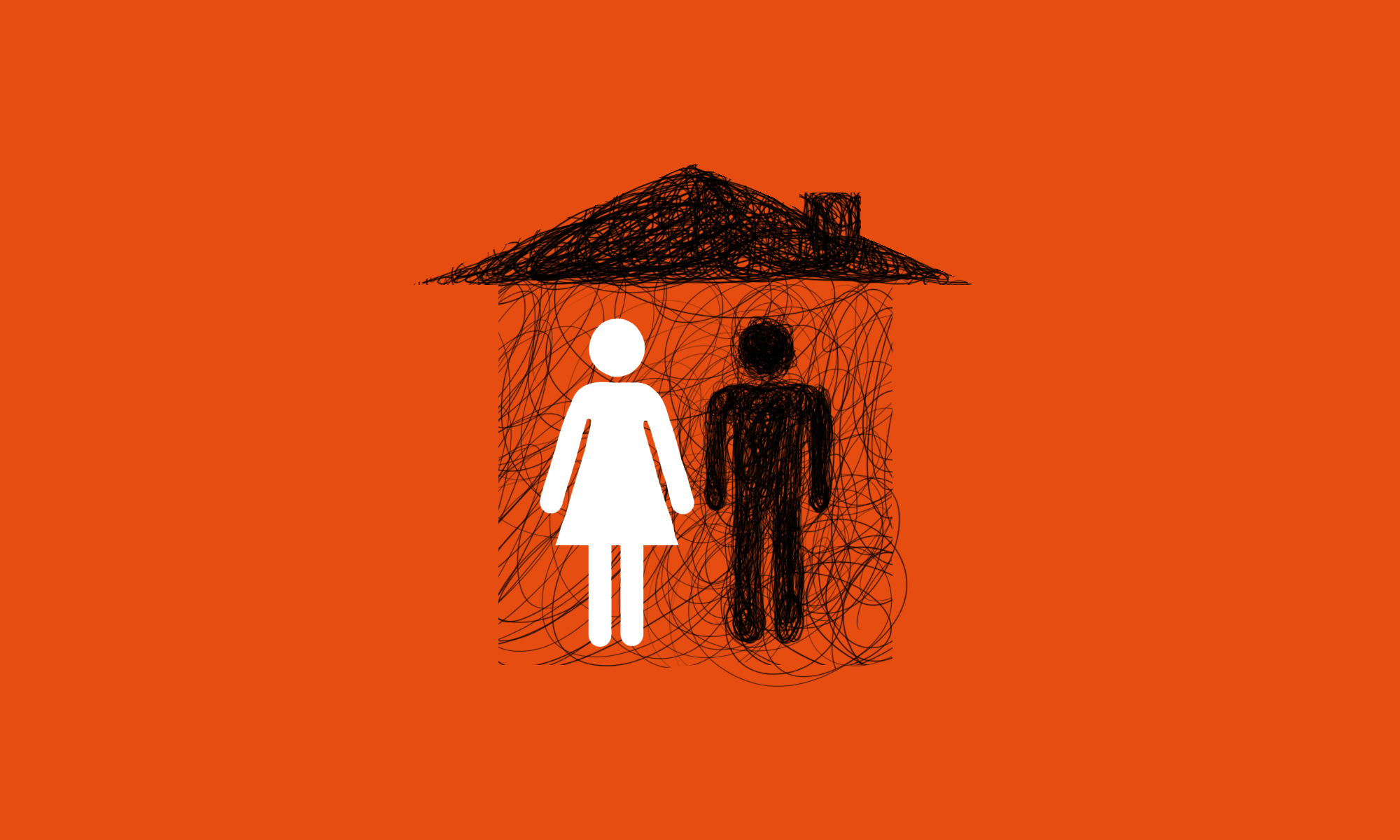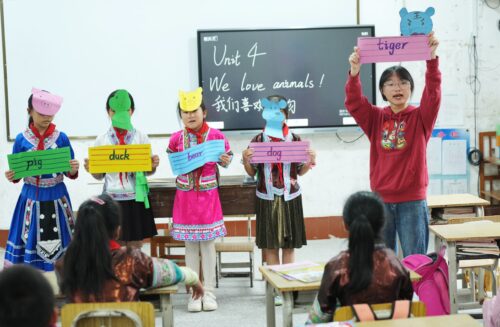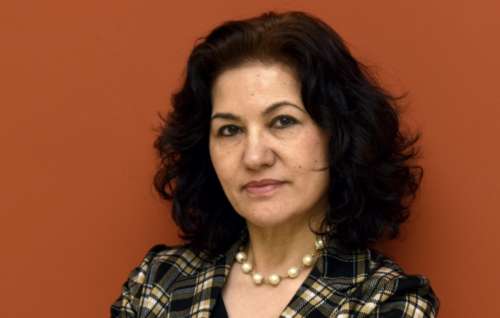Chinese women’s struggle to cope with domestic violence in the U.S.
They came here wishing for a “happily-ever-after.” That’s not what happened. Junyao Yang talked to survivors of intimate partner abuse in the U.S. to learn about their struggles for safety in a strange land.

Note: Pseudonyms and English first names are used throughout this article to protect the identities of interviewees.
Michelle remembers the day well. She and her ex-husband were in the kitchen, fighting over the money he owed her mom. He grabbed a wok and banged it against the table. She ran to the bedroom, trying to call the police. He snatched her cell phone and hung up. Michelle asked him to give her phone back.
“Why would I? I paid for everything in the house. It’s all mine!” he said.
Two police patrol cars arrived on the scene. As an immigrant, she couldn’t speak English very well, so her sister-in-law interpreted for her, laughing because Michelle “couldn’t even say things straight.” Michelle could tell the police officers were impatient as soon as they found out she wasn’t physically hurt.
“I just wanted to run away. I wanted separation in every possible sense,” Michelle told me in Mandarin.
She left the house in a hurry, with no phone, no map, and nowhere to go.
Cultural norms and language barriers
Michelle is one of the many Chinese immigrant women living in the United States who have survived intimate partner violence. Many of them arrived in the U.S. with dreams of a “happily-ever-after.” Instead, they found themselves living in a nightmare.
Escaping an abusive relationship is a harrowing experience for any woman. But Chinese immigrants in the U.S. face additional cultural and institutional hurdles that can make them especially vulnerable to abuse. They are cut off from their support networks back home, and often unable to speak English.
Interviews with survivors of abuse, mental health experts, attorneys and advocates, show that Chinese women in the U.S. are less likely to seek help because of cultural norms that prioritize family interests and tout sacrifice as a virtue: A Chinese saying advises “Don’t talk about your family troubles in public (家丑不可外扬 ). Those who do call for help often encounter local court and advocacy organizations that are not well-equipped for people with limited English proficiency.

As a result, many immigrant Chinese women are forced to stay in abusive relationships. Some go online to seek community. Chinese social media platforms like Xiaohongshu are filled with posts and comments by women sharing their experiences with domestic violence and abuse.
“Survivors don’t know how to seek help, especially in Chinese communities due to the lack of awareness of domestic violence,” said Yang Li, a researcher at the University of Texas, Austin, who co-authored a study focusing on intimate partner violence against Chinese immigrant women, based on interviews with 20 Chinese immigrant survivors.
Approximately one in five Chinese immigrant women surveyed have experienced intimate partner violence in the past year, according to a study published in 2020. Most of the 475 participants have at least a bachelor’s degree and are relatively young, with an average age of 33. The scope of the problem is much bigger when taking older and less educated Chinese immigrant women into account.
Cultural norms also silence survivors.
“Asking for help means ripping off the fig leaf,” said Yang Li. “Some survivors choose to only self-help and not to tell anyone, which can be extremely painful.”
Before making the U.S. her new home, Kiki was a fashion influencer on China’s early fashion social media platform Mogujie, with more than 50,000 followers. Her aunt introduced her to a man in 2013. He was living in the U.S., and she joined him the next year, and they got married. After arriving in the new country, she had no idea how things worked.
Her husband convinced her that she couldn’t do anything on her own. She didn’t get her driver’s license for years because he made her believe she couldn’t drive on American roads, even though she has been driving in China since 18.
“He would tell me all the time my English is not good, so he’d be the one talking to other people for me,” said Kiki.
The relationship turned sour after he met someone else. According to Kiki, he never really beat her, but he would bombard her inbox with threatening text messages to get her to sign the divorce papers. He called her “the worst mother in the world” and said their kids want her “only for the breast milk.”
Experts say that this is a common tactic abusers use to make their partners more dependent on them, both financially and psychologically, and therefore more vulnerable to control and manipulation.
When women try to find ways to become more financially independent, their abusive partners and sometimes in-laws make them believe it’s not the right thing to do. Michelle, who escaped her house after her ex-husband lost his temper in the kitchen, did find a job as a receptionist at one point, though, earning a monthly wage of about $2,000. But she only worked for about a week because her mother-in-law became unhappy about her working instead of taking on more family responsibilities. Her ex-husband also made fun of her for earning even less than how much he paid for gas every month and he told her it would take up the income tax filing threshold amount. If she has a job, he told her, it would do no good but only increase their household taxable income.
When the abuse is not physical, it’s even harder for survivors to prove to law enforcement or the legal system that the abuse did happen. For Chinese immigrant survivors, this is made even more difficult by the language barrier, which stops from telling their stories.
Alexis Bagon, a staff attorney at Asian Pacific Islander Legal Outreach, who works with domestic violence survivors, points out that it’s extremely difficult for people to prove they deserve immigration benefits when they don’t have the language accessibility to do so.
“Basically you have to say all the worst things that ever happened to you, in very clear detail, with great memory and corroboration,” Bagon said.
There are legal requirements for the court to provide adequate interpretation services to people with limited English proficiency, but the court system is not resourced or equipped to be able to abide by that, said Donna Lee, a professor at the City University of New York (CUNY) School of Law, who taught in the Battered Women’s Rights Clinic.
“It’s really variable,” Lee said. “The competency, accuracy and ability of the interpretation.”
Michelle remembers calling the staff at her shelter, when an interpreter would be on the telephone line. Even though she could only speak limited English, she could tell some interpretations were not as accurate. The interpreters would follow along her and suddenly she’d realize what they were translating was the opposite of what she meant.
There can also be gaps in interpretation.
Hilda Chan, a staff attorney at Bay Area Legal Aid who works with domestic violence survivors and practices in San Francisco and Alameda County, recalled how in one of her trials, the survivor was called “Gai” in Cantonese, which the court interpreter translated as “chicken.” It is the literal meaning of the word, but in Cantonese slang, it can also mean “prostitute” or “whore.”
“Call her a chicken, that’s nothing. But calling someone a whore or a prostitute has a different abusive meaning, especially if you say it in front of the children,” Chan said.
Even advocacy organizations are struggling to make sure the non-English speaking survivors can get help immediately when they call.
“It could go from anywhere within the day to three days, to get a call back,” said Jasmeen Kairam, Capacity Building Coordinator at California Partnership to End Domestic Violence. “It’s really, really discouraging for folks, especially when they are in crisis. But we have to work with what we have, unfortunately.”
Not everyone wants to leave the relationship. It’s not uncommon for survivors to “want the abuse to stop, but the relationship to continue,” experts say. But for those who do, leaving is not easy either.
Kiki is still in the process of her lawsuits that have dragged on for the fifth year. She has posted about her own divorce and financial conflicts with her ex-husband on Xiaohongshu, answering questions from other Chinese women on how to fight for child custody or find a good lawyer.
But she’s also moving on with her life. She has cut her hair and dyed it blonde. She calls herself a handywoman and does carpentry in her spare time, building a standing desk and a wooden dog house from scratch. Unlike what her ex-husband told her, that she is not capable of doing things on her own, she can now do anything.
For Michelle, it’s been nearly two years since she escaped from the house. She has been living in a transitional shelter where survivors have their own private rooms, but share communal areas like a school dorm. Their kids have quarrels and fights from time to time, breaking the calmness in the shelter. Michelle rather enjoys the vibrancy. But she is going to move out in a couple of months and is so anxious about leaving the shelter that she has to take antidepressants to help her sleep.
But now she feels better. She has also been posting about resources and her experience going back to school on Xiaohongshu, hoping to help more survivors to get back on their feet. She created a group chat with more than 100 single mothers living in the U.S., from California to Texas, New York and Florida. Many are survivors of intimate partner violence.
Some of them wanted to leave, but couldn’t. They worry about their immigration status, especially if they have to fight for child custody. They have to bypass daunting language barriers to find a job that can sustain them and find affordable daycare for their children.
“It’s just too hard. If it weren’t for that day when things got out of control, if I had really thought through all these barriers, I might not have left,” Michelle said. “But at least now I feel free.”
- This article was written with financial support from the Asian American Journalists Association.






